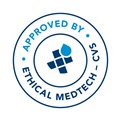
Lebogang Ramma
University of Cape Town
South Africa
Title: An alternative grading system for ototoxicity in adults: Towards a uniform international standard for grading ototoxicity
Biography
Biography: Lebogang Ramma
Abstract
Ototoxicity, defined as a functional impairment and cellular degeneration of the tissues of the inner ear caused by therapeutic agents, is a common adverse event reported following treatment with various compounds such as aminoglycosides and platinum derivatives. Ototoxicity often leads to permanent damage to cochlear and vestibular end organs and may lead to permanent hearing loss. Several criteria have been developed over the years to document ototoxicity-induced hearing loss following treatment with ototoxic medication. However, most of existing criteria have limitations that preclude their use across different contexts; lack of a ‘common language’ used to grade ototoxicity, do not strongly relate to functional outcomes and do not appreciate the effect of ultrahigh frequency hearing loss. We therefore developed an alternative and more clinically relevant grading system (UCT ototoxicity grading scale) for ototoxicity in adults that could be used across patient populations and institutions. In this study, we assessed the feasibility of using this alternative ototoxicity grading criteria as well as compared it to existing ototoxicity grading criteria for adults. The findings of our study showed that the new criteria was easy to use (good interrater reliability, Kappa = 0.87) and showed good agreement with existing ototoxicity grading criteria for adults (UCT versus CTCAEv4, 73.4%; UCT versus TUNE, 78.2%). Given that the UCT ototoxicity grading scale was developed from universally used hearing loss classification systems and it is easy to use, we recommend it for use across different contexts and population groups.

